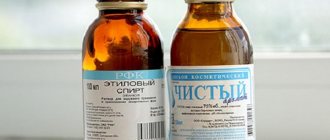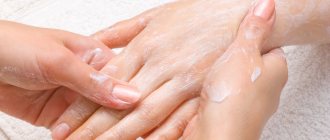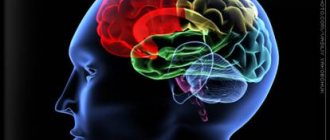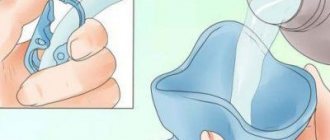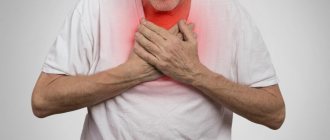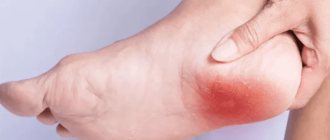Heartburn is an unpleasant symptom that you want to get rid of quickly. After all, eating and feeling full should bring pleasure and relaxation, not torment. Let's find out what medications can help with heartburn.
Heartburn occurs when acidic stomach contents enter the esophagus. The esophageal mucosa is not adapted to such an environment and an unpleasant burning sensation occurs. In the course of life, this condition can happen to anyone through overeating, bending over after eating, or in women during pregnancy. With prolonged symptoms, the esophagus may suffer, erosions, ulcers may develop, and scar tissue may form, which will lead to a narrowing of the lumen. Cell degeneration and the development of neoplasms may occur.
Causes of heartburn
The most common cause of heartburn is gastroesophageal reflux disease (GERD). It occurs in 83% of patients with this problem. In addition to heartburn, symptoms such as:
- regurgitation, esophageal vomiting, belching;
- salivation;
- pain when swallowing food;
- difficulty passing food;
- hoarseness of voice;
- nasal congestion;
- coughing;
- glossitis;
- interruptions in heart function.
In addition to gastroesophageal reflux disease, heartburn may be closely associated with:
- Peptic ulcer of the stomach and duodenum.
- Stomach cancer.
- Functional dyspepsia (a group of diseases that do not lead to changes in the structure of the digestive organs, but cause disturbances in their functions).
Many medications have the property of reducing the tone of the lower esophageal sphincter, which can lead to reflux of contents into the esophagus or themselves cause inflammation. Hormonal, antihypertensive, and anti-inflammatory drugs may have such side effects. Therefore, you need to read the instructions carefully.
Many medications can cause heartburn.
The cause of heartburn can be increased intra-abdominal pressure and conditions leading to this:
- pregnancy;
- ascites;
- flatulence;
- hepato-splenomegaly;
- constipation;
- chronic obstructive pulmonary disease, etc.
Without treating the underlying disease, taking heartburn medications will not only not help in the future, but will also mask the symptoms of the underlying problem.
Pain due to coronary heart disease can be confused with heartburn.
What medications effectively help with heartburn?
Why can't you drink soda if you have heartburn?
You've probably heard that you can get rid of heartburn at home with baking soda.
This is what our grandparents did (the case when folk remedies are more likely to cripple). From chemistry lessons we know: an acid can be neutralized with an alkali to water. But we must remember that this chemical reaction releases carbon dioxide. Once in the stomach, it provokes the production of a new portion of acid. It's like putting out a fire and adding fuel to it at the same time. There is a short-term effect, but then it gets worse.
How to choose a drug for heartburn?
To begin with, we will list the reasons that can lead to heartburn, so that you take your health seriously and, if the symptom appears frequently, consult a specialist for diagnosis.
Possible causes of heartburn:
- chronic gastritis with increased acid secretion,
- hiatal hernia,
- ulcer,
- reflux disease,
- zero acidity (achlorhydria).
Heartburn can also be caused by the effects of gastric surgery, the use of certain medications, hypersensitive esophageal syndrome, and pregnancy.
Medicines used for heartburn:
- Antacids
. Contains magnesium, calcium or alginic acid salts that neutralize hydrochloric acid. These are natural substances for our body, so they do not irritate the mucous membranes. There are analogues containing aluminum salts, but they can lead to digestive disorders. - Preparations that form a gel barrier
, preventing acid reflux. - Drugs that suppress acid secretion
. Drugs of this type should be prescribed by a doctor; for some diagnoses their use is not recommended. - Prokinetics
. Increase muscle tone, accelerate the transit of food from the stomach to the intestines. Specialist consultation is required.
Antacid complexes are the most gentle way to get rid of unpleasant symptoms.
CONSUMED offers five antacid complexes for heartburn, which differ in release form (tablets, suspension, gel suspension), as well as auxiliary components.
Additional recommendations:
- For 1.5–2 hours after eating, do not bend over or take a horizontal position.
- Avoid tight clothing, belts and corsets that compress the gastrointestinal tract.
- Avoid heavy lifting.
- Stop smoking.
- Eat small portions, do not overeat.
- Avoid irritating foods: too hot, cold, spicy, sour, fatty.
- Reduce your consumption of coffee, strong tea, chocolate and alcohol.
Dietary supplement IT IS NOT A MEDICINE. BEFORE USE, IT IS RECOMMENDED TO CONSULT WITH A SPECIALIST.
Heartburn medications
If heartburn does not bother you often, once a week or less, you can take antacids and alginates .
Antacids
This group of drugs neutralizes hydrochloric acid produced by the cells of the gastric mucosa. Reducing acidity in the stomach helps to increase the tone of the lower esophageal sphincter.
Modern combination drugs that additionally have an enveloping and sometimes calming effect include:
- Phosphalugel;
- Almagel A;
- Gastal;
- Maalox;
- Relzer.
The main thing is that these medications do not have rebound syndrome, like regular soda. When using it, the acidity first decreases, and after a few hours it increases again.
Alginates
- Gaviscon;
- Gaviscon Double Action.
Preparations from the alginate group form a gel film on the surface, which protects the mucous membrane from the action of acid and pepsin. Some drugs have a double effect, since they contain an antacid component.
H2-histamine receptor blockers
- Ranitidine;
- Famotidine;
- Nizatidine.
They reduce the production of hydrochloric acid by the parietal cells of the stomach. The advantage of their action is that the secretion associated with food intake is suppressed to a lesser extent, which means the digestive processes will be affected to a lesser extent. At the first symptoms of heartburn, it is possible to take halved doses of H2-histamine receptor blockers. The effect can last up to 12 hours, and there is no need for additional antacid medications.
H2-histamine receptor blockers reduce the production of hydrochloric acid by the parietal cells of the stomach.
Proton pump inhibitors (PPIs)
- Nexium;
- Nolpaza;
- Pariet;
- Omez.
Proton pump inhibitors inhibit the final stage of hydrochloric acid formation in the parietal cells of the stomach. The maximum effect of administration develops on days 5-7 of administration. The secretion of hydrochloric acid is restored on the 2nd day after stopping the intake. With prolonged use of drugs for several years and a severe lack of hydrochloric acid in the stomach, pathogenic flora can develop. Drugs in this group do not have an immediate effect and can only be prescribed by a doctor after diagnosis.
Prokinetics
- Ganaton;
- Motilium;
- Motilak.
If the symptoms of heartburn go along with impaired motor function of the stomach, the organ is sensitive to stretching, prokinetics help accelerate the evacuation of food into the small intestine. The propulsive motility of the stomach increases.
UDCA preparations
- Ursosan.
Sometimes not only the contents of the stomach, but also the contents of the small intestine, such as bile, are thrown into the esophagus. This situation can arise in case of liver diseases, when drugs that reduce acidity in the stomach have already been used, there is no reflux of the acidic part, but there is irritation and heartburn in the esophagus. In this case, ursodeoxychoic acid (UDCA) preparations are recommended. They help the liver restore its function, normalize the formation and flow of bile, and can reduce the symptoms of heartburn. The course of application is from 2 weeks to 6 months.
What can you do on your own without medications?
Eating a healthy diet will help prevent heartburn.
If heartburn appears sporadically and is not associated with gastrointestinal diseases, then you can remove the unpleasant symptom without the use of medications. What doctors recommend:
- Review your own diet. You don't have to go on a diet, just stick to the principles of a healthy diet.
- Avoid cigarettes and alcohol and chew food thoroughly.
- Finally, take care of your own body - get rid of those extra pounds.
- For rare episodes of heartburn, use safe antacids.
- If unpleasant symptoms recur with enviable frequency and intensify, and new ones are added, then you should definitely contact a gastroenterologist.
- During the examination, the doctor will suggest that you undergo an endoscopic examination to rule out an ulcer or hiatus hernia.
Activated carbon
Activated carbon is a simple and reliable enterosorbent.
Activated carbon is a simple and reliable enterosorbent. Its task for heartburn is to absorb excess hydrochloric acid, which burns the stomach and esophagus.
This drug is cheap, is not absorbed through the gastric mucosa, and is approved for both children and pregnant women. It is enough to drink 2 tablets at the first sign of hydrochloric acid reflux into the throat.
Preventing recurrent heartburn
There are some rules that can help reduce the symptoms of heartburn.
To prevent heartburn, you need to follow simple rules that will help reduce the load on the stomach and reduce unpleasant symptoms:
- Small portions of food 4-5 times a day.
- Reduce consumption of very spicy, salty, fatty foods.
- Avoid carbonated drinks and foods that cause gas (soda, beer, simple carbohydrates)
- Raise the pillow 15-20 cm while sleeping.
- Try not to eat before bed and not to lie down after eating.
- Give up bad habits (alcohol, smoking).
- Reduce excess weight.
- Do not lean forward too much and do not strain, avoid lifting weights of more than 8-10 kg (do not strain your abdominal muscles).
- Remove corsets and tight belts from your wardrobe, wear looser clothes that do not squeeze your stomach.
Conclusion
Self-medication can be practiced for mild, rare symptoms. For this purpose, drugs from the group of antacids and alginates are used, and a single dose of Ranitidine 75 mg is also possible. If heartburn bothers you more than once a week , you need to consult a doctor . Taking medications should not be uncontrolled. Self-administration should not last longer than 7-10 days. Otherwise, you may not notice other serious diseases in time, one of the symptoms of which may be heartburn.
Heartburn in pregnant women. How to help?
Heartburn in pregnant women is common.
Women expecting a baby are a separate category of patients with heartburn. This condition is due to the fact that the growing uterus puts pressure on all organs and systems.
The problem is aggravated by the fact that pregnant women are not recommended to take many medications. How to help an expectant mother cope with a burning sensation in the esophagus? There are a number of rules that should be followed:
- away from all potentially dangerous products, even if you really want to;
- eat little and often;
- do not take a horizontal position after eating.
What home remedies are allowed for a pregnant woman? The list is small, but all recommended methods have worked well:
- Warm milk is good for both the baby and the expectant mother, and will relieve heartburn.
- Carrot juice and grapefruit juice. Take citrus fruits with caution so as not to provoke an allergy attack.
- Nuts – several kernels each, as this is a fatty and high-calorie food.
- Vegetable oil - 1 tablespoon during an attack. And the heartburn will go away, and the problem of constipation during pregnancy will be solved.
If heartburn is tormented and home methods do not help, then it is better for a woman in the position to consult a doctor.

